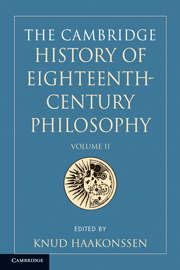33 - Norm and Normativity
from V - Moral Philosophy
Published online by Cambridge University Press: 28 March 2008
Summary
‘Obligation’ and its cognates have had several different uses in the history of ethical thought. The oldest refers to a tie or bond one person can have to another, either by virtue of some action (an oath or the receipt of some service, for example) or just because of the relationships in which they stand (say, parent to child or superior to inferior). Obligation here is personal; one person is bound to another. Thought of in this way, obligations cement individuals together into families, groups, and societies.
A second use points to a different way persons might compose larger wholes or orders, not by being glued part to part (even to a single ‘ruling’ part), but through rules, norms, or laws that govern all. Here ‘obligation’ conveys a prescriptivity or requiredness that is part of the very idea of a rule or norm. Naturally enough, therefore, when philosophers in the seventeenth and eighteenth centuries came to argue for the existence of universally binding norms of conduct (‘laws of nature’ or a ‘moral law’), they used the language of obligation to express their idea. Conceived in this way, the bond inherent in obligation is not a tie to others, but a constraint operating impersonally on all. Indeed, it is possible to think, as increasingly it was in the modern period, that personal obligations can have genuine moral or normative force only if they ultimately derive from impersonal ones of this sort. If, for example, parents really owe special obligations to their children, that must be because of some norm or law requiring special care – not a positive law, but one of universal morality or ‘nature’.
- Type
- Chapter
- Information
- The Cambridge History of Eighteenth-Century Philosophy , pp. 987 - 1025Publisher: Cambridge University PressPrint publication year: 2000
References
- 4
- Cited by



